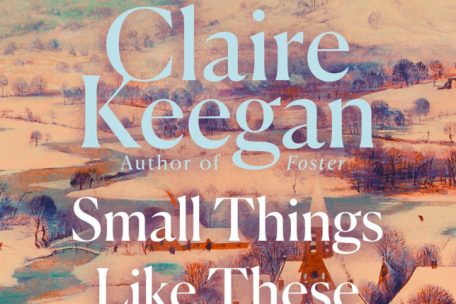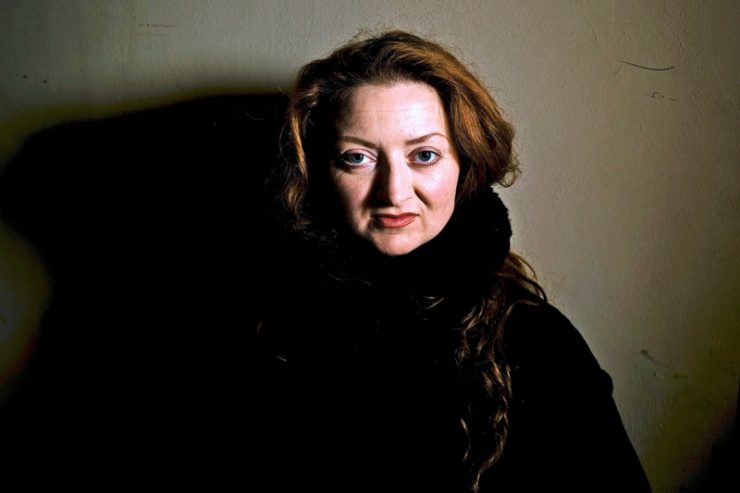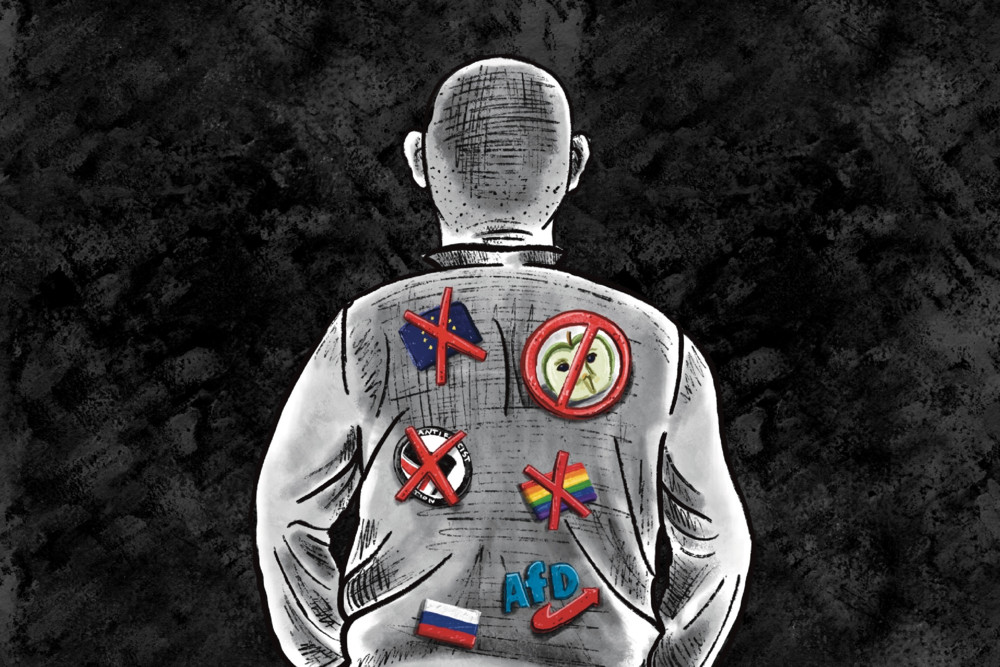„Was there any point in being alive without helping one another?“ This is the conclusive, simple and poignant question main character Furlong, a coal and timber merchant, asks himself at the very end of this short, gripping novel that portrays an Irish town in 1985.
Furlong has done well for himself: While he came from „less than nothing“, his mother having fallen pregnant while working as a domestic for Mrs Wilson, a rich and generous Protestant widow living in a big house a few miles out of town, the gentleness of said Mrs Wilson, who took him under his wing, and a combination of persistence, stubbornness and intelligence – he had „head for business” and „no taste for drink“ – allowed him to call into life a small coal and timber business, with several men working for him and enough money to „not own a penny”, as his wife Eileen tenderly puts it when one evening, shortly before Christmas Eve, he tells her he’s afraid of working too much and not contributing enough to the education of their four girls.
While Furlong usually seems to be „disinclined to dwell on his past“, he’s recently started, a bit like butler Stevens in Kazuo Ishiguro’s „The Remains of the Day“, whose minimalist yet moving prose Keegan’s novel is reminiscent of, to sleeplessly lay in bed, going on over small things he observes, with images of the gap between those who are well off and those who pulled „the short straw” haunting him increasingly – he remembers once seeing „schoolboy drinking the milk out of the cat’s bowl behind the priest’s house” –, Furlong slowly realising, because of where he came from, that „it would be the easiest thing in the world to lose everything“ while his wife Eileen thinks on the contrary that „some of these bring the hardship on themselves“.
What starts off as a succession of everyday tableaux of a modest life in an Irish town, a happy yet dull, somehow monotonous existence, a life led with the permanent need to think of what lies ahead, with the future inevitably being „a version of the same thing, yet again“, turns into a much more gruesome tale when Furlong makes a coal delivery to a convent. In the absence of Mother Superior of Sister Carmel, his usual contact persons, he ventures inside the convent and sees a dozen of girls on their hands and knees „with tins of old-fashioned lavender polish and rags“. One of the girls of the training school run by the Good Shepherd nuns takes notice of Furlong’s presence, runs towards him and asks him to set her free or at least to take her „as far as the river“.
Shocked by the state these girls rumoured to be „common, unmarried“ or of „low character“ are in, Furlong soon realises that no one in the community is ready to do something about their fate: on the contrary, these rumours, rather than triggering people to try to help, contribute to constructing an image of them as outcasts.

How not to be a coward
„Small Things Like These“ is a strong parable on human cowardness, on how we accept how evil is done as long as it doesn’t really concern us – this is a recurrent observation the main character of „The Seven Moons of Maali Almeida“ makes –, on how we put away in some corner of our mind the less pleasant realities we avoid to face whenever we can: When Furlong returns to the convent and finds a sick, feeble and disoriented girl locked away in the coal house, who asks for her baby, „the ordinary part of him wished he’d never come near the place.“
Keegan being a precise reader of the human soul, its many shortcomings and its (rare) moments of beauty and selflessness, she knows that our „ordinary part“ is what makes us look the other way: when on autopilot, our sense of self-preservation always outweighs empathy, which makes the moral dilemma – will Furlong break out of the circle of passivity the town and its God-fearing inhabitants have locked themselves in? – at the core of this narrative so touching.
To tell her dark story based on true facts – in her final „Note on the Text“, Keegan reveals that about 30.000 girls were „concealed, incarcerated and forced to labour“ in so-called Magdalen laundries, institutions „run and financed by the Catholic church“ where 9.000 babies died in just eighteen of the institutions investigated –, Keegan’s language unfolds slowly, in a simplistic way that is treacherous, because under the quiet surface of the text, many things dark and beautiful are simmering.
As in her short story „Misogyny“, one gets the feeling that very little is actually happening: in „Small Things Like These”, the reflections on the monotony of a good life, on making the right decisions, on standing up against passivity, the subtle description of an impending sense of doom, of the invisible threat the Catholic church exerts over its population – there’s biblical images everywhere, and when Keegan writes that some of the townspeople complained about the statue of „Joseph being overly colourful“, there is more on racism, tradition and fear of change in these few words than they can bear – add up to a touching reflection on what it means to act in a human way, even – or especially – when it means putting yourself and what you have at risk.
Was Sie auch noch interessieren könnte:
– On pangolins and pogroms: „The Seven Moons of Maali Almeida“ by Shehan Karunatilaka
– Joseph in Wonderland: „Treacle Walker“ by Alan Garner
– Sortir de l’ombre: „Oh William!“ d’Elizabeth Strout
– „Something’s going on in the state of Mississippi“: „The Trees“ by Percival Everett
– Distorsions et manipulations: „Trust“ de Hernan Diaz
Info
„Small Things Like These“ by Claire Keegan, 2022 Faber & Faber, 116 pages, 10 £

 Zu Demaart
Zu Demaart








Sie müssen angemeldet sein um kommentieren zu können